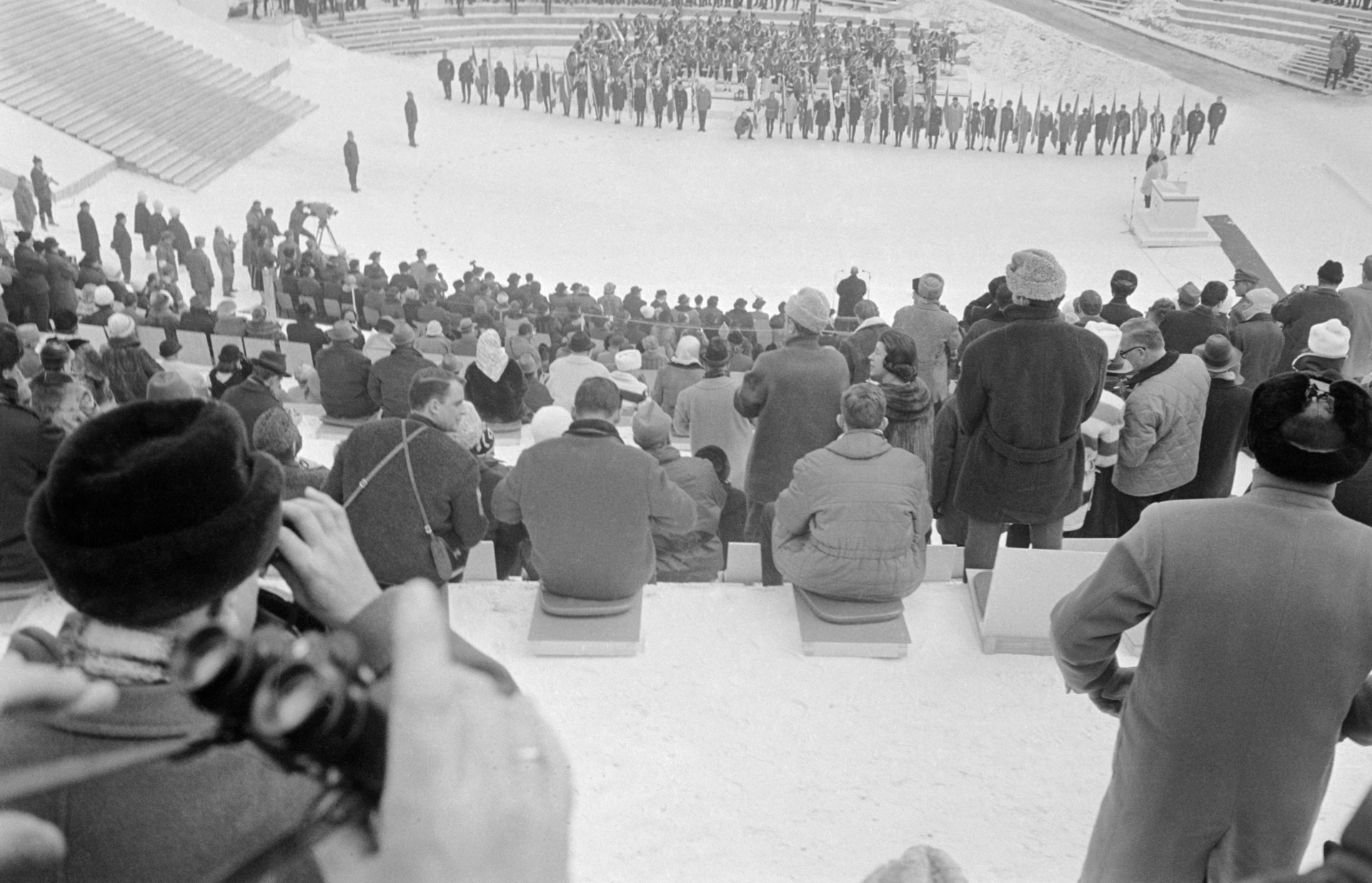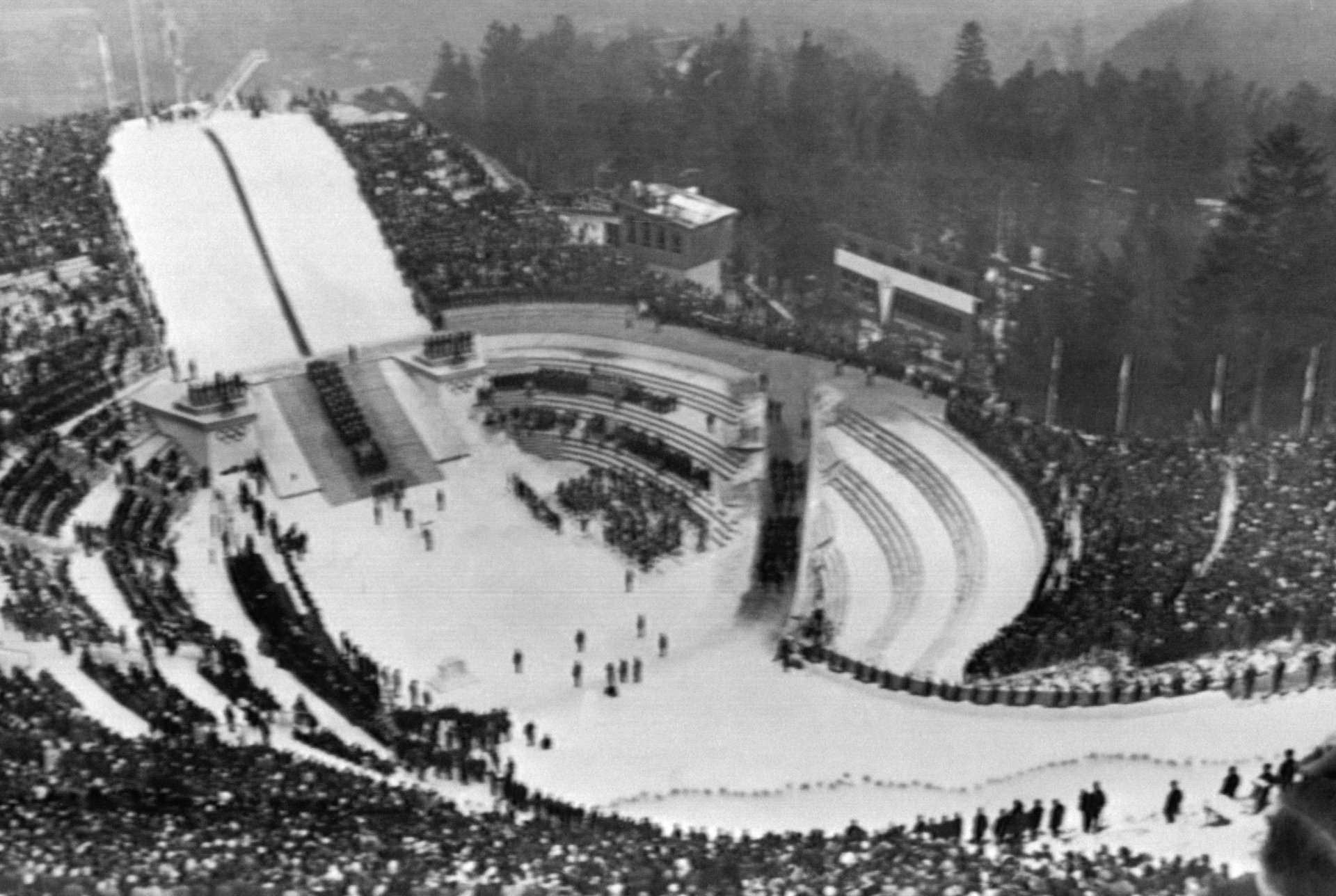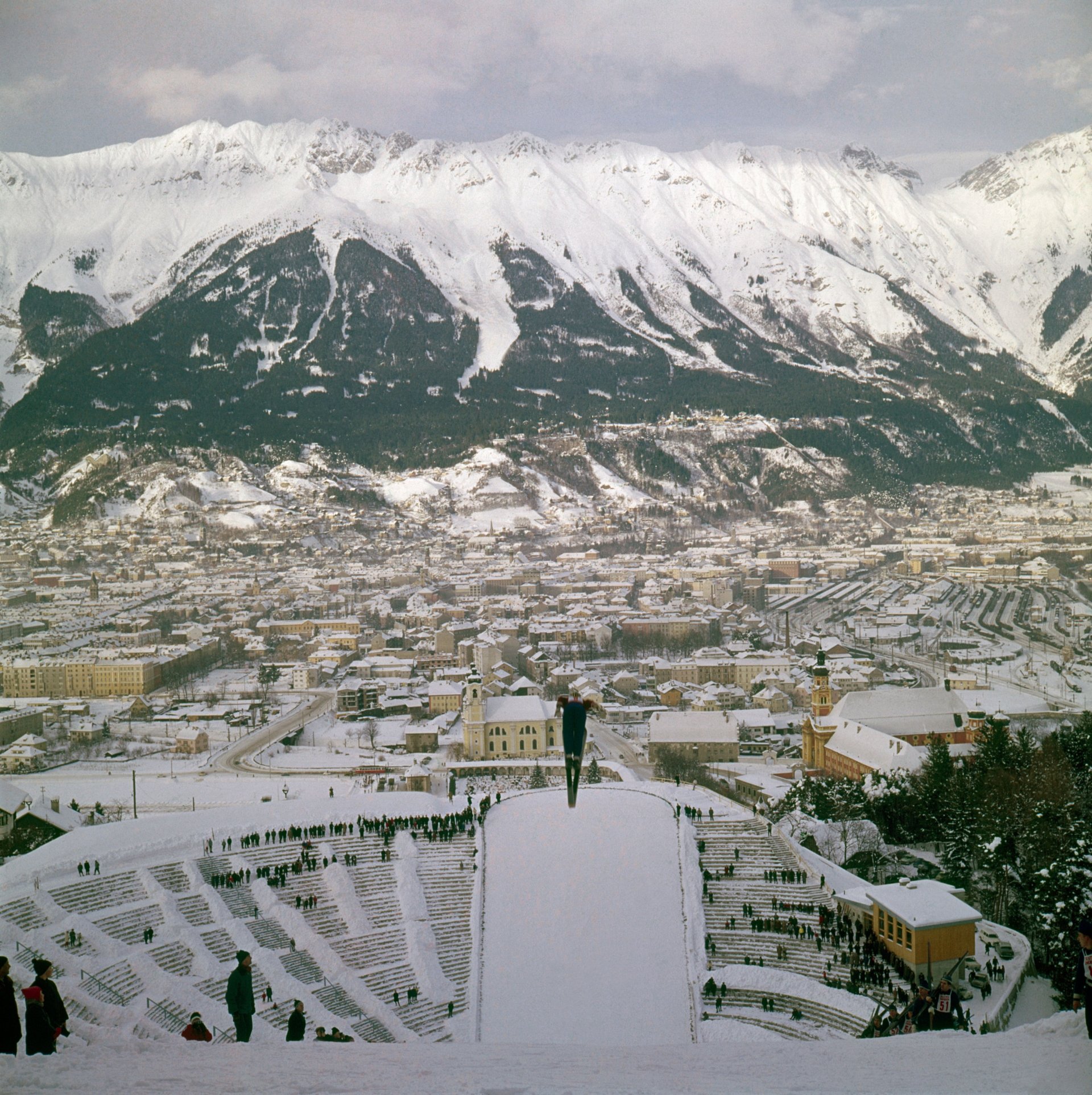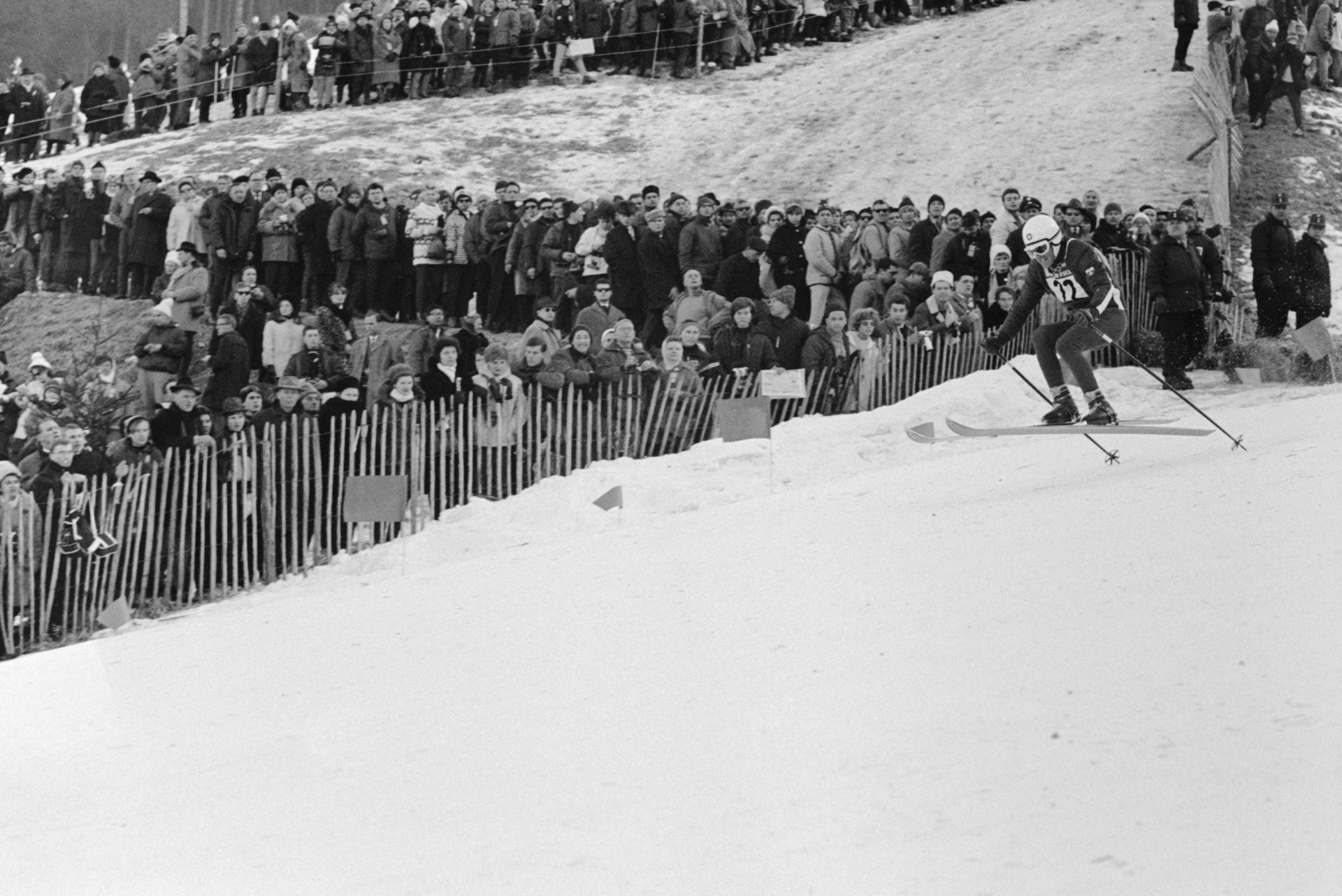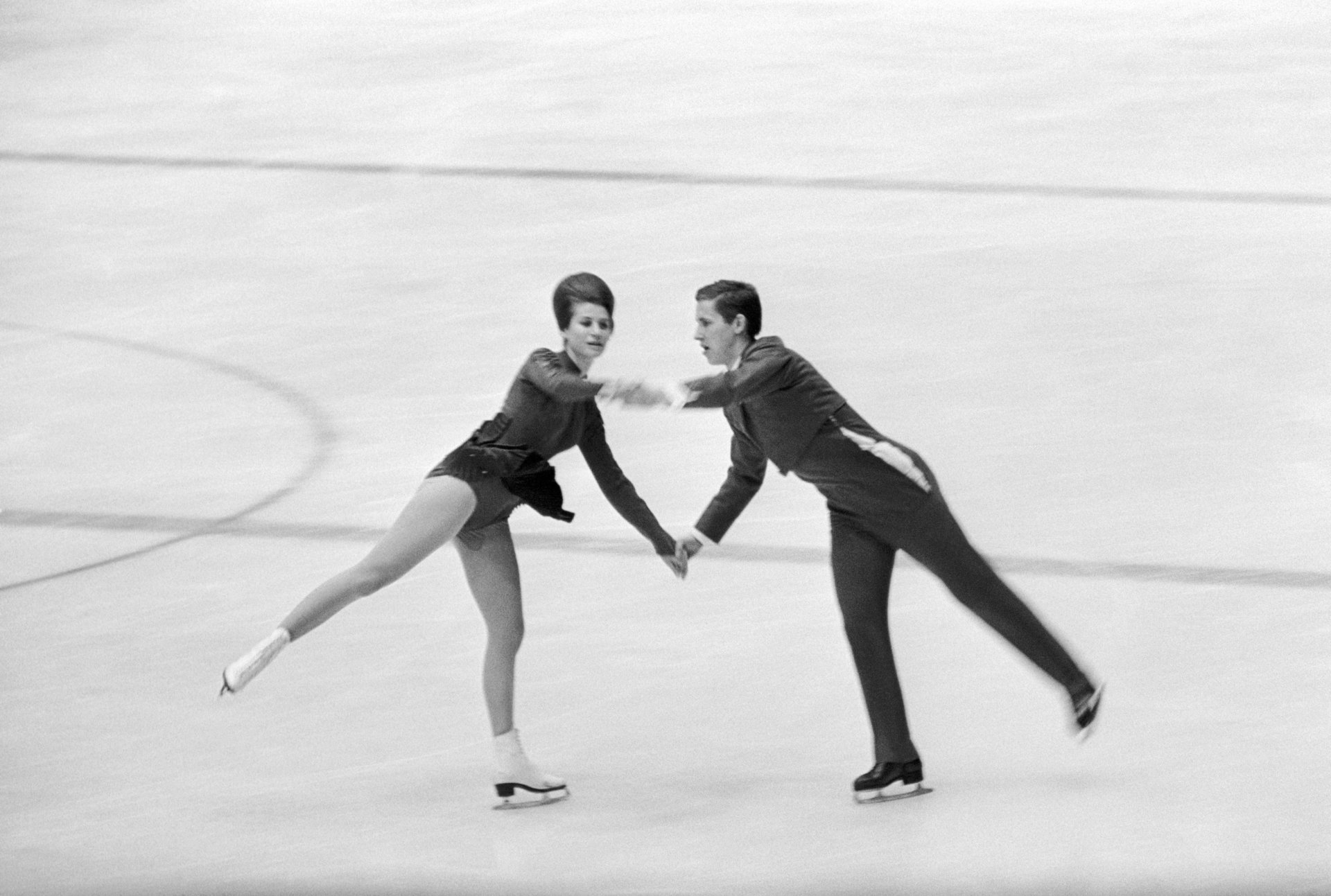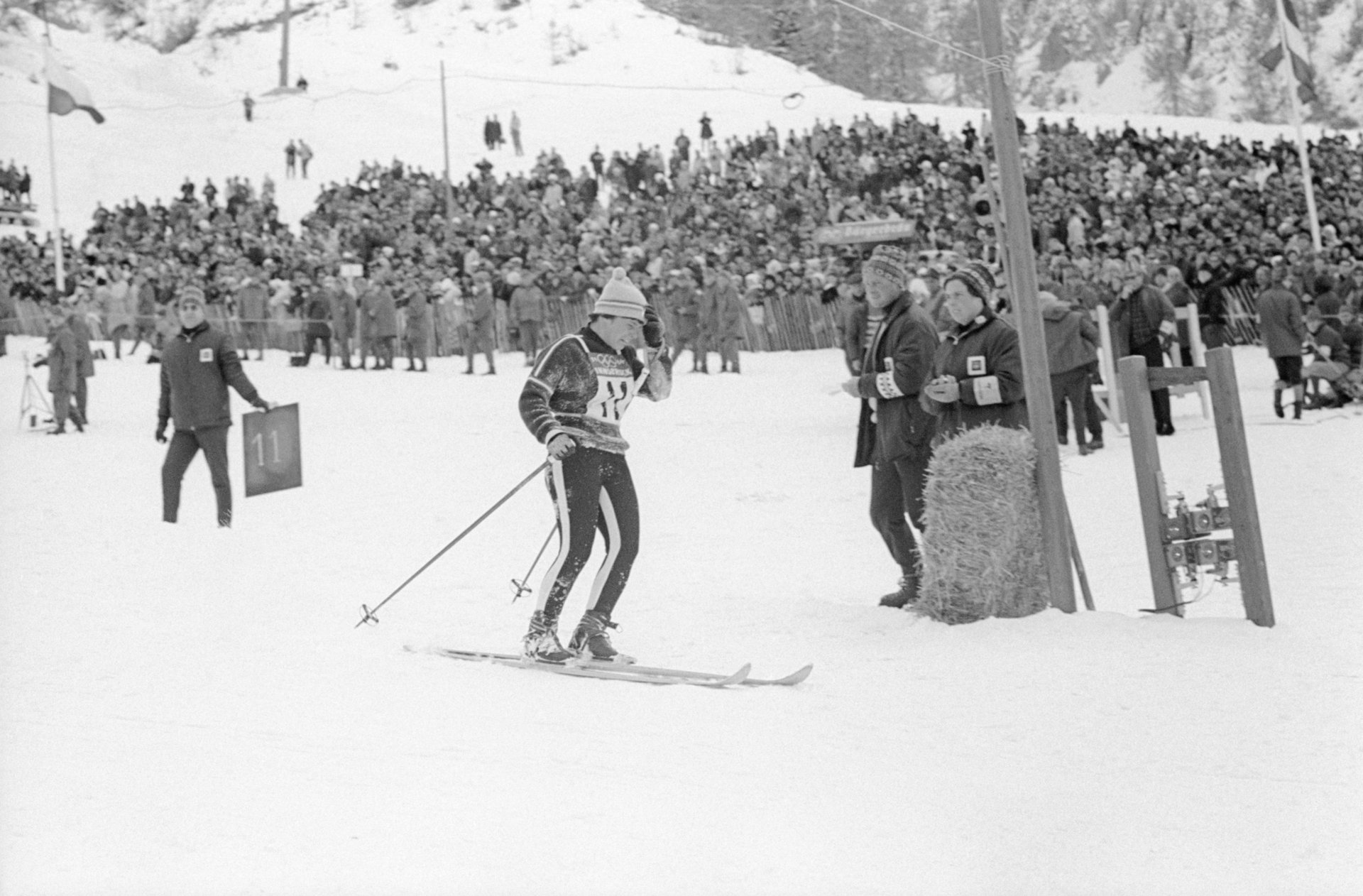As early as 1951, Innsbruck's Municipal council decided to apply to host the 1960 Winter Olympics. However, Innsbruck is defeated by Squaw Valley in the US state of California. However, Innsbruck submits another bid for the 1964 Winter Games and is awarded the honour of hosting the IX Winter Olympics in May 1959, ahead of the other candidate cities (Calgary, Canada and Lathi). Winter Olympics.
Immediately after the award was announced in May 1959, Innsbruck began preparations for the major event. In addition to the construction of the most important venues, such as the ice stadium, ski jumping stadium and toboggan run in Igls, numerous other preparations were necessary. Both the Axamer Lizum and the Patscherkofel had to be prepared for winter sports. Finish huts had to be erected, piste cables laid, roads improved and much more.
Shortly before the games (January 1964), however, there was an acute shortage of snow. Not only the Patscherkofel and the pistes in Axams, but also the cross-country ski trails around Seefeld were partially snow-free. An unprecedented snow transport operation was launched and snow was brought in by lorry, sometimes on horn sledges and backpacks. The Austrian army brought 20000 blocks of ice to the bobsleigh and toboggan runs as well as 40000 m³ of snow for the alpine ski runs.
A few days before the opening of the Games, two dramatic deaths occurred. The 19-year-old Australian Ross Milne went over the edge of the piste during downhill training on the Patscherkofel and crashed into a tree. He died on the way to hospital. During a training run on the luge track in Igls, British luger Kazimierz Kay-Skrzypeski came off the track and died. The shock was great, the country mourned and flew its flags at half-mast. Were the 1964 Olympic Games going to be under a bad star?
Despite the tragic events and the acute lack of snow, the Olympic Games were able to open as planned on 29 January 1964. Right from the start, the Games were accompanied by great euphoria and a spirit of optimism. Spectator interest was enormous: 50,000 visitors attended the opening ceremonies live in the ski jumping stadium, 40,000 cheering fans in the Axamer Lizum and 60,000 fans at Egon Zimmermann's triumphant run on the Patscherkofel mountain illustrate the great enthusiasm that the Games generated.
Nevertheless, the 1964 games cannot be compared with today's games. There were hardly any major sponsors for the athletes or masses of journalists. Earning money with competitive sport was not possible for many people back then. Often, not even the big stars of the Olympic Games were recognised on the street. This was because very few people had a television.
A summary of the games shows that the originally planned "simple" games were not quite so modest. Around 107,840,000 schillings (around 7,837,038 euros) were spent between 1960 and 1965, including all material expenses. This was offset by income totalling 83,730,000 schillings.
For the first time, more than one million spectators watched the Olympic Games. And it wasn't just the spectator figures that were positive; the 1964 Winter Olympics made Innsbruck famous all over the world and laid the foundations for the Tyrolean capital's reputation as the sports city in the Alps.
Preparations
Preparations for the major sporting event begin in 1959. The most important new facilities:
- Ice stadium at Tivoli
- Ski jumping stadium at Bergisel
- Olympic Village
Opening ceremony
The Games were opened on 29 January 1964: for the first time, fire was brought from the Greek Olympia - until then, this had only been customary at the Summer Games.
The torch bearer was Christl Staffner (skier from Kitzbühel). The skier Josl Rieder from Lermoos lit the fire in the bowl and Paul Aste (Austrian luger and bobsledder and oldest member of the Olympic team) recited the Olympic oath.
21 radio stations and just as many television stations broadcast the opening ceremony and competitions all over the world. For the first time, more than one million viewers watch the Olympic Games live.
On 9 February 1964, the ski jumping competitions at Bergisel and in Seefeld were the last competitions. The closing ceremony took place in the ice stadium.
Competitions
1091 male and 199 female athletes from 36 nations took part in 34 competitions in the following sports:
- Bobsleigh
- Biathlon
- Ice hockey
- Figure skating
- Speed skating
- Alpine Skiing
- Nordic skiing
- Luge
Medals
Medal table
| Place | Nation | Gold medal | Silver medal | Bronze |
|---|---|---|---|---|
| 1. | Soviet Union | 11 | 8 | 6 |
| 2. | Austria | 4 | 5 | 3 |
| 3. | Norway | 3 | 6 | 6 |
| 4. | Finland | 3 | 4 | 3 |
| 5. | France | 3 | 4 | 0 |
| 6. | Germany | 3 | 3 | 3 |
| 7. | Sweden | 3 | 3 | 1 |
| 8. | USA | 1 | 2 | 3 |
| 9. | Netherlands | 1 | 1 | 0 |
| 10. | Canada | 1 | 0 | 2 |
Winners from Austria
The small nation of Austria proved its greatness in winter sports at the IX Olympic Winter Games. With 4 x gold, 5 x silver and 3 x bronze, the Austrian team was only beaten in the overall classification by the team from Russia (11 gold, 8 silver, 6 bronze). Especially in the alpine skiing disciplines, but also in luge and bobsleigh, the athletes proved to be a force to be reckoned with.
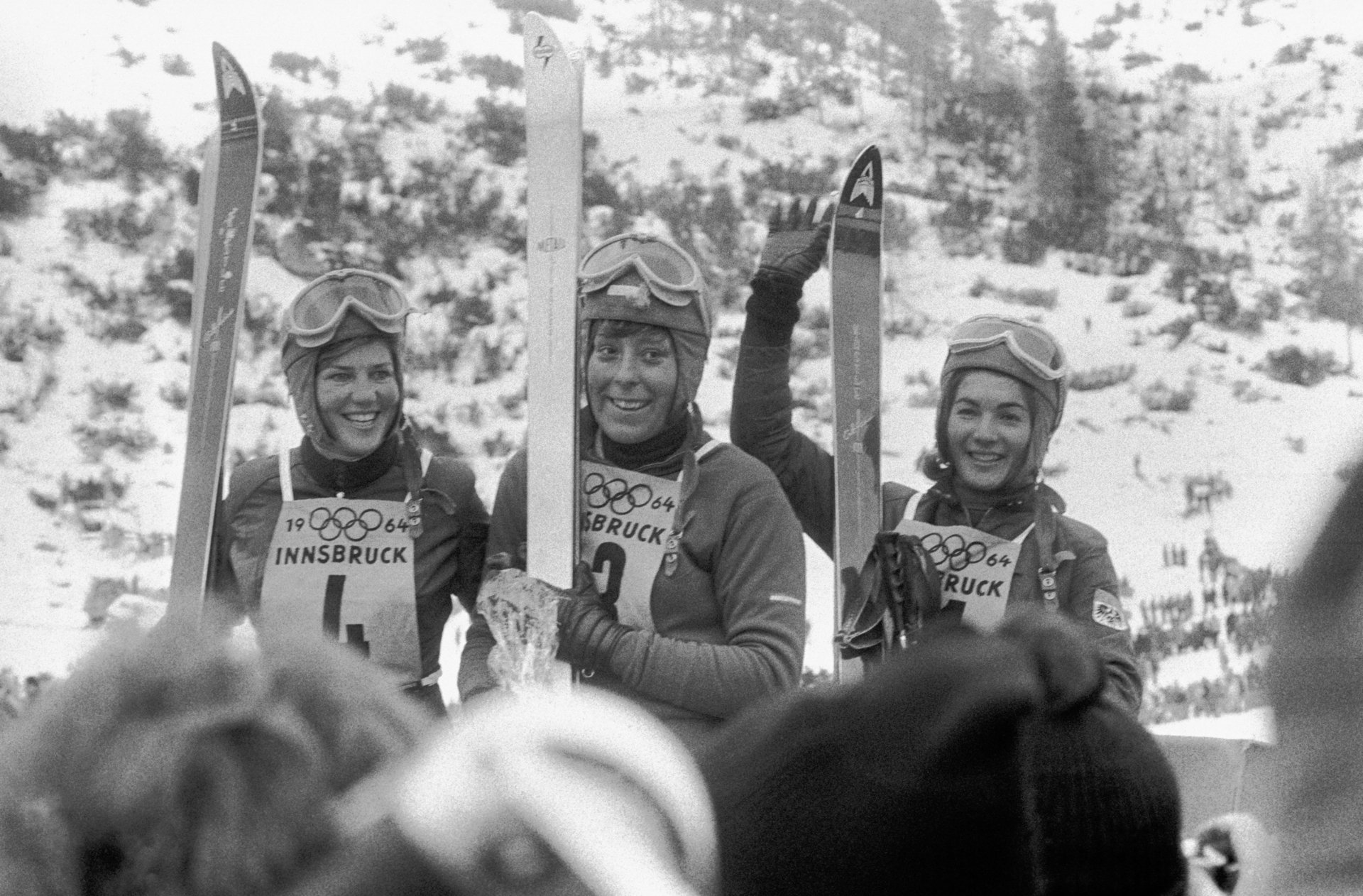.%20Traudl%20HECHER%203rd,%20Christl%20HAAS%201st%20and%20Edith%20ZIMMERMANN%202nd-1920x1262.jpg)
The Austrian winning trio of the women's downhill Traudl Hecher (3rd place), Christl Haas (1st place) and Edith Zimmermann (2nd place).© 1964/International Olympic Committee (IOC)
Gold medals
- Egon Zimmermann (downhill)
- Josef Stiegler (special slalom)
- Josef Feistmantl and Manfred Stengl (men's doubles luge)
- Christl Haas (downhill)
Silver medals
- Edith Zimmermann (downhill)
- Karl Schranz (giant slalom)
- Erwin Thaler, Adolf Koxeder, Josef Nairz, Reinhold Durnthaler (four-man bobsleigh)
- Reinhold Senn, Helmut Thaler (men's doubles luge)
- Regine Heitzer (women's figure skating)
Bronze medals
- Josef Stiegler (giant slalom)
- Traudl Hecher (downhill)
- Helene Thurner (single-seater luge)
This might also interest you:
Contact
Opening hours
Office:
Monday to Thursday:
8.00-12.00 and 13.00-16.00
Friday:
8.00-12.00
Phone:
Montag bis Donnerstag:
8.00-16.00 Uhr
Freitag:
8.00-12.00 Uhr
